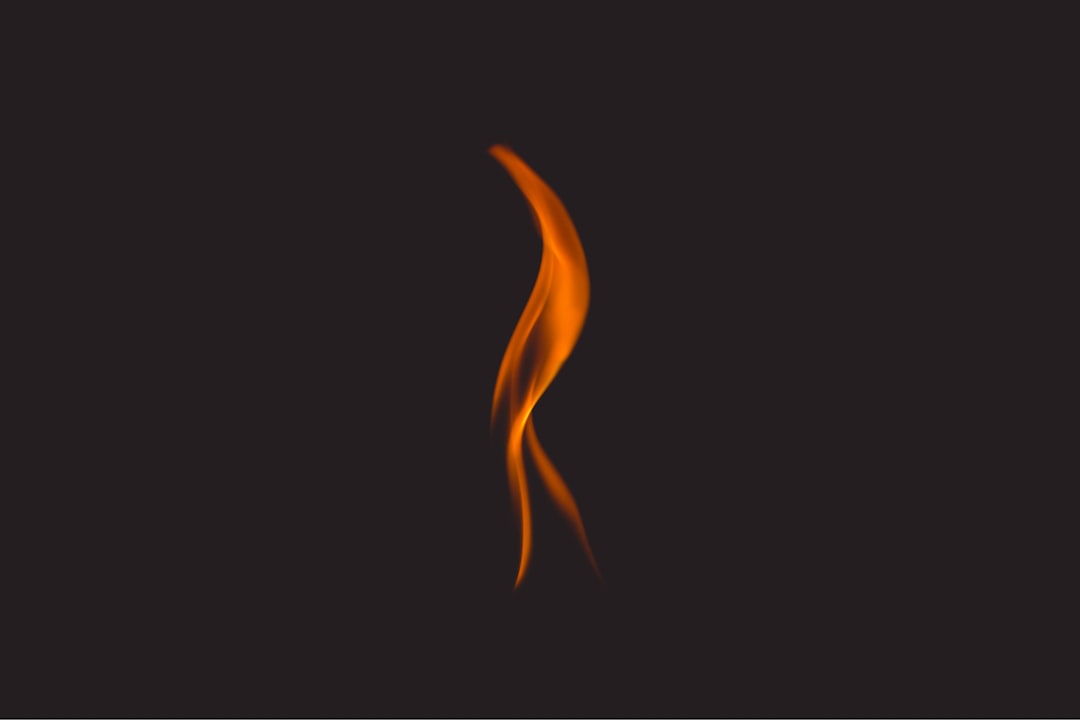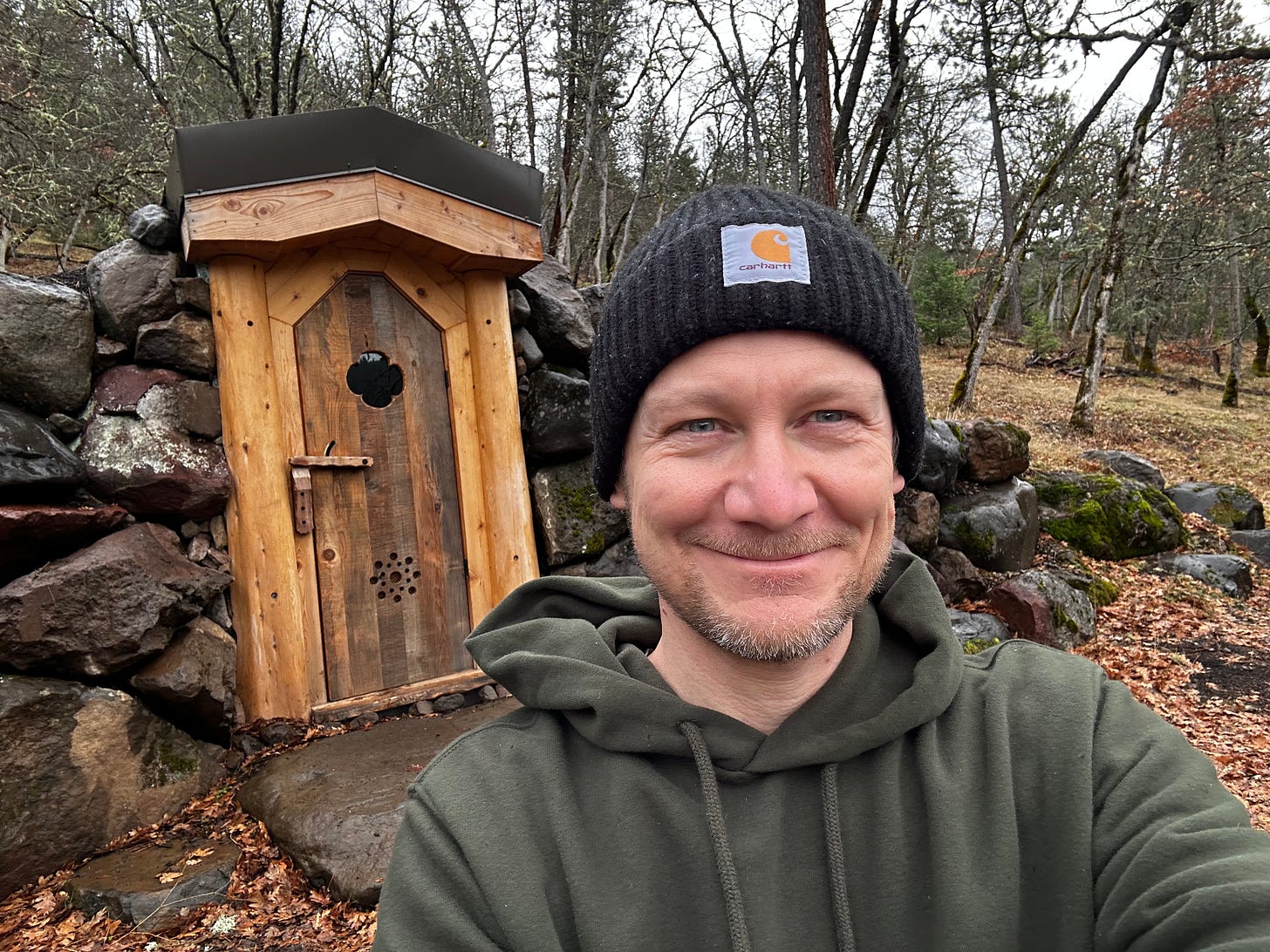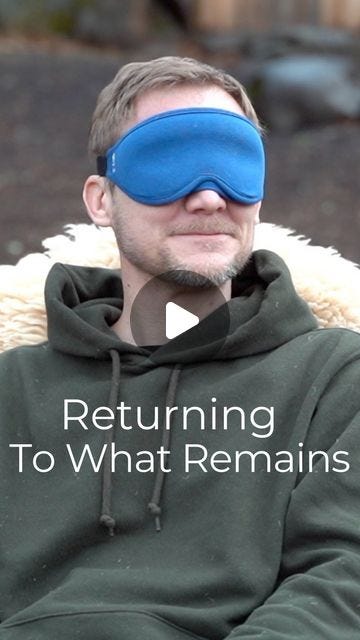I Spent 3 Days in Total Darkness. Nothing Happened and It Was Profound.
10 Questions about Darkness Retreats and Insights from the Void
A few days ago, I returned from a 3-day/4-night darkness retreat. Nothing happened and yet, true to the paradoxical nature of life, Everything did.
I’ve already received many questions about darkness retreats in general and about my experience specifically. While my experience is fresh, I want to answer those questions and share a few insights that I hope might be useful.
In the coming weeks, I plan to release a couple recorded conversations with my friend, Scott Berman, who runs Skycave Retreats. I’m excited to share those when they’re ready, as well as other notes from my time in the darkness.
Let’s dive in.
Q: What is a Darkness Retreat?
It’s exactly what it sounds like. It’s a solo retreat in total darkness and sensory deprivation, completely isolated from the outside world in a (usually) soundproof room, cabin, or cave.
Most people retreat for 3 to 5 days, though many spiritual traditions—from the “desert fathers and mothers” of Christian mysticism to the Dzogchen practitioners of Indo-Tibetan Buddhism—incorporate extended periods of time in the darkness. Some, like the Kogi Mamos of Colombia, spend years in the dark as a form of intensive spiritual training.
For me, three days was just right.
Q: How dark is it?
“What kind of dark are we talking about?” a friend asked. “Kinda dark, like my bedroom at night dark, or dark dark?”
“Darker than the darkest dark you’ve ever darked,” I told her.
It’s the complete and total absence of light.
The only similar experience I’ve had was as a kid when my dad took my sister, brother, and me to Squire Boone Caverns in Indiana. The tour guide took us deep into the cave and then, to show us how dark it is inside the earth, switched off all the lights for a moment.
It’s a darkness with texture and aliveness that I can only describe with words like: spacious, void, emptiness, fluid, timeless, soft, aware.
When the lights go out, it feels like the world rushes out with a woosh. It took my breath away as a kid in that cave, and it did the same the night I blew out the candle and began my retreat.
Q: What is the cabin like?
Simple and cozy. Rather than tell you, let me show you. Here is a 90 second walk-through of the cabin I stayed in to give you a sense.
Q: Are you locked in?
No. There’s no lock on the door and there are also two light switches in the room—one in the main room and one in the bathroom.
At any moment I could leave, turn on the lights, go outside if I wanted to, or tap out and go home and no one would have cared but me.
Q: What do you do in the dark?
A lot of nothing.
During the first day I pulled out all my tools: breathwork, different meditation techniques, visualization, and my sad attempts at yoga (harder in the dark, btw).
Turns out, darkness isn’t impressed with any of my clever tools, which are ultimately all just meant to bring me back to the simple truth of Now. The harder I tried to be present, the more frustrated I got, to the point where I almost tapped out near the end of Day 1.
At some point early in Day 2 I relaxed, stopped trying to be, and totally accepted actually being in the dark. I became okay with nothing happening and not needing anything to happen. It reminded me of something Jiddu Krishnamurti once said:
What is the secret? I don’t mind what happens.
I decided to not mind anymore.
I also learned to listen to and trust my body.
I became very still when my body wanted to be still. I stretched and moved when I felt the urge to move. I made a game of navigating the room. I would take a nap or meditate when that felt natural. I also sang, asked questions, danced (also harder in the dark, btw), did air squats and push ups, and screamed.
In between all of that I would eat, poop, drink herbal tea, pee, drink more tea and pee some more, and then wonder what my wife and daughter were up to. Then I would rinse and repeat.
Q: Did you have any human contact during your retreat?
Yes. Twice a day, my retreat guide would come to make sure I was alive. Just kidding. Mostly.
In the morning, he would come to stoke the wood stove, which heated the cabin. Before leaving, he would open his side of the food cabinet and talk into it while I sat on the other side. It felt like a weird confessional, to be honest. He would ask how I was feeling and what was coming up for me, and I would share something that probably made no sense.
In the evening, he would deliver food for dinner that night as well as breakfast, lunch, and snacks for the following day.
Other than that, I was alone.
Q: Why would anyone do this to themselves?
It seems the answer falls into one of two categories: Spiritual and Non-Spiritual. Those with little or no spirituality come with a therapeutic intention.
Many are seeking to regulate their nervous system while others are working through some form of trauma. Researchers at Harvard are becoming interested in the possibilities of darkness therapy as a healing modality.
My reason: I went to find the signal in the noise.
Experiences like this, to me, aren’t about adding anything. They’re about peeling away and unlearning. To me, that’s what this thing we’ve called “spirituality” is—an attempt to get to the essential nature of life and Truth.
Much like the tinnitus in my ears, the constant hum of Truth is ever-present, but often goes unnoticed because of the noise of daily distraction. Eliminate the noise and the signal comes through in greater clarity.
I’ve decided the most important question of my life is: What is truth?
Other people’s answers and ideas are fine, but they aren’t my answers. I must find my own through direct experience, which is why I do things like this.
During my retreat I realized, too, that ultimately I want to live a delicious life, one rich with interesting flavors and textures. We live in a monoculture of climate-controlled, curated, predictable lives that give us the illusion of living. Only by questioning and stepping out of it have I learned to see what’s real.
Q: Did you get bored?
Oh, yes.
Sometimes I successfully used the boredom to practice re-directing my focus to presence-awareness. Other times, I got tired, gave up on being spiritual or mindful and pouted or tried to take a nap.
Q: How do you eat, use the bathroom, etc.?
Very carefully.
As it has often been said, “Slow is smooth, smooth is fast.”
Q: What is it like coming out of the dark?
I’ll show you. Scott records and interviews everyone when they come out of the darkness and return to the light. Here was my first reaction.
Q: What did you learn?
It will take awhile to fully know, and already there is too much to write here without this piece becoming too long. However, a few key lessons rise to the surface that I’ll share:
1. I’ve sleepwalked through much of my life.
Most of our days are lived on autopilot in a kind of trance. We eat, drink, think, feel, and do the same things on repeat.
We’re like the person who drives the same way to work every day for twenty years and then one day finds himself sitting in the parking lot, but doesn’t remember the 30-minute commute he just did to get there.
Waking up means remembering.
2. The Nature of Awareness is stillness, peace, and joy.
Sitting in the dark, it was obvious how thoughts, feelings, and emotions naturally arise, consume my attention, and then fade like notes of a piece of music. The notes come and go, but the space they fill for a time does not.
That space, call it awareness or consciousness, is like a symphony hall where the music is played. Before the concert begins, the vast open space simply is. It’s spacious, quiet, and empty. Then the orchestra plays, filling the space with music, until the final note fades and reveals the quiet once again, which had always been there, making the music possible.
We are that space.
3. Life is meaning-less.
I almost quit on Day 1. As I sat in the dark I had an argument with myself about how stupid this was, how I felt stuck, and wished I could just go home.
Then I realized, I could. There was no lock on the door and the light switch was six feet away. No one was keeping me there. I was doing this to myself. It dawned on me so fast I laughed out loud. And in a moment, my frustration melted into acceptance and, not long after that, joy.
I give my life all the meaning it has for me.
Meaning is my opinion.
As the symphony plays, everyone decides their own response to the music, whether they love it, hate it, or are simply receptive to it. All music is composed of the same notes, just arranged in different ways. We may not prefer what we hear, but we always are in control of our response to it.
4. All my unhappiness is the result of resisting life.
When I wish life were different than it is, I’m unable to be here, now. The mind gets “grippy” and defaults to thinking about the way things were or the way things should be so it can find a way to regain a sense of control over life.
Life cannot be controlled. Only my response to it can.
Of course, I’m always free to have preferences. I can always wish life were different than it is, and I usually do. It’s human nature. However, peace is only found through acceptance of What Is. Right now. No one every found happiness tomorrow.
That is not passive. You can accept What Is while being deeply committed to creating an exceptional life through intentional action.
Post Script
I encourage you to step off the conventional, seemingly safe paths of your life. Explore. Ask dangerous questions. Discover what your life is really about. No one can tell you that. You must find it for yourself.
If you must, burn your ships of certainty and belief on the beach and walk into the vast wilderness of your Self. The map is not the territory, you are. I had to go into the darkness to be reminded of that. I encourage you to find your own way.
One last thing…
On the way home from my retreat, I listened to a song by Hozier on repeat that sums up my experience in the dark, perhaps in a way that will only be meaningful for me. But I wanted to share it here.
If you get a chance to listen to it, please do.
At last When all of the world is asleep You take in the blackness of air The likes of a darkness so deep That God at the start couldn't bear And sit unseen With only the inner upheld Your reflection can't offer a word To the bliss of not knowing yourself With all mirroring gone from the world But still the mind Rejecting this new empty space Fills it with something or someone No closer could I be to God Or why he would do what he's done - From De Selby (Part 1) by Hozier
Much love. I’ll see you in the light.
Kevin





I am even more amazed by the man who emerged from the darkness and found his inner light once again. So proud of you! ♥️
Well said. And ultimately, nothing and no one is ever truly found because there was no one who was lost to begin with. Haha.